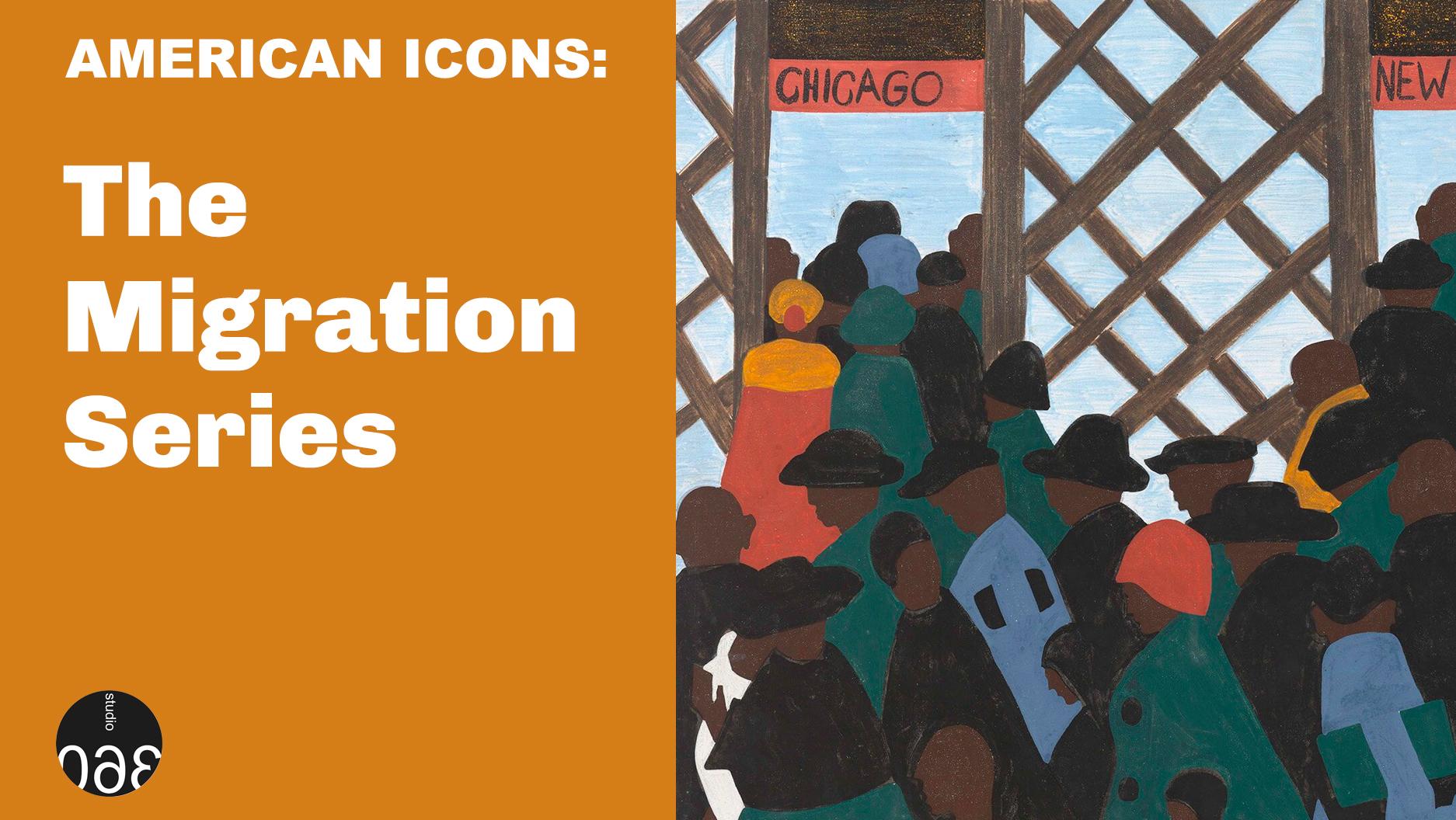American Icons: ‘The Migration Series’ by Jacob Lawrence
Jacob Lawrence, “The Migration Series, Panel no. 1: During World War I there was a great migration north by southern African Americans.,” 1940–41. Casein tempera on hardboard, 12 x 18 in.
From 1910 to 1970, 6.6 million African Americans migrated from the rural south — a dramatic movement that would permanently change the social, political and cultural fabric of our nation.

In 1941, Jacob Lawrence’s iconic series “The Migration of the Negro” (now generally referred to as “The Great Migration”) rocked the art world with its depictions of an active moment very much underway — over the course of 60 panels, the hardships of the South, the disappointments of the North and the first steps of the Civil Rights movement are masterfully displayed.

Lawrence is literally and figuratively looking at the big picture — his African American figures are often painted dark brown or black, without faces. The whites are often equally anonymous. It’s a leaderless mass movement brilliantly depicted in strong earth tones, sharp angles and artful compositions. The captions that accompany each panel are an integral part of the series, which made it one of the first modern artworks to incorporate text with images.

The story of the Great Migration, as told through Jacob Lawrence’s paintings, is the story of mass determination — a lasting testament to the notion that our country’s ideals – life, liberty & the pursuit of happiness – are perhaps most dutifully embodied by the lives of those positioned furthest from them. It’s also the story of a black artist whose commitment to himself allowed his art to weather the storms of criticism fad and tokenism.

American Icons is made possible by a grant from the National Endowment for the Humanities.
The article you just read is free because dedicated readers and listeners like you chose to support our nonprofit newsroom. Our team works tirelessly to ensure you hear the latest in international, human-centered reporting every weekday. But our work would not be possible without you. We need your help.
Make a gift today to help us raise $67,000 by the end of the year and keep The World going strong. Every gift will get us one step closer to our goal!
